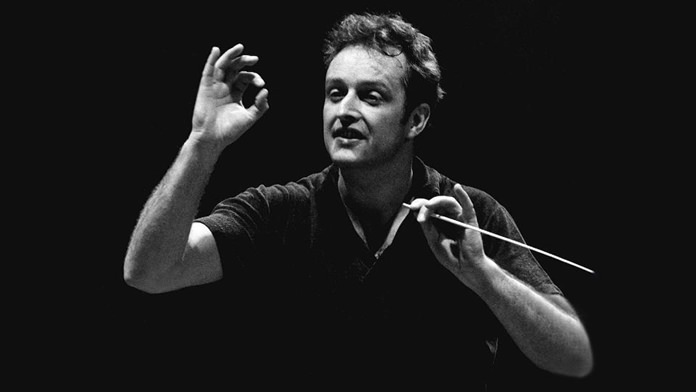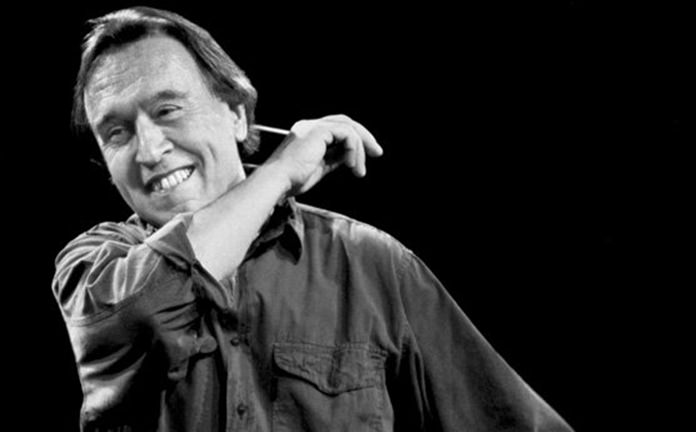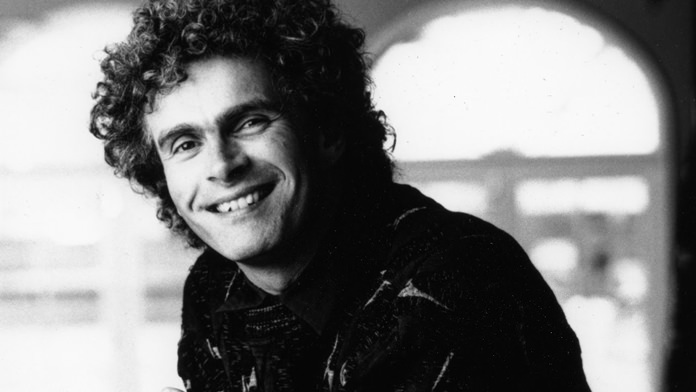
A well-known documentary film made in 1968 shows Leopold Stokowski rehearsing his orchestra and exhorting the players to “follow the conductor”, curiously referring to himself in the third person and speaking in his peculiar style of English. Today an orchestra looks incomplete without someone standing at the front taking charge, but it wasn’t until the middle of the nineteenth century that the conductor emerged as a central figure in musical performance. Mendelssohn was one of the first composers who conducted and later, both Berlioz and Wagner achieved fame as conductors. So did Mahler, who for a few years conducted the Vienna Philharmonic.
It takes an exceptional musician to become a decent conductor. A thorough knowledge of musical theory and history is essential as well as an understanding of harmony. Life is too short to learn every instrument in the orchestra but the conductor must have a working knowledge of each. Conductors need exceptional aural skills with a spot-on sense of intonation, rhythm and phrasing. It takes confidence to direct a group of sixty feisty musicians. Charisma too, along with an outgoing and assertive personality. It might sound obvious, but the conductor must passionately want to conduct and enjoy the atmosphere of rehearsal and the thrill of performance.
The musical score is often regarded as almost a sacred document. As Stokowski once remarked, it’s only “black marks on white paper” but it contains the blueprint of what the composer wanted. For a conductor, a good musical memory is useful but some conductors memorize the entire score. Bruno Walter expected conductors to know the score by heart. By the end of his career, Toscanini had evidently memorized 200 symphonies and 100 operas. Hans von Bülow is credited with the much-quoted advice, “You must have the score in your head, not your head in the score”.
The most visible aspect of conductors is the way they use gesture. Some conductors thrash around like windmills yet others seem to barely move. Sir Adrian Boult was one of the latter. An effective conductor also uses eye-contact (though Karajan seemed to avoid it), facial expression and body language to convey the phrasing, shape or intention of the music. The conductor must have a sensitive understanding of human relationships. There’s a delicate balance between controlling the orchestra and letting the musicians have artistic “space”. As Karl Böhm once said “There must always be this compromise, this balance between letting oneself go completely and maintaining control.”
So what then is the difference between a merely decent conductor and a great one? You may have your own ideas, but I think a great conductor brings something to the music which is beyond the listeners’ expectations or imagination. Great conductors are often visionaries: their depth of knowledge and understanding enables them to bring new insights into the music or create a heightened musical experience. A great conductor also seems to inspire the musicians to reach peak performance.
A few days ago I was listening to Mahler’s Third Symphony conducted by Claudio Abbado who more than anyone was a weaver of musical magic. In the last movement for example, Abbado’s musical sensitivity and profound understanding of Mahler’s timeless sound-world touches the heart with almost painful poignancy. His performances of Mahler and Bruckner have been described as “explorations of spirituality…journeys of the soul and affirmations of humanity.
In 2010, BBC Music Magazine asked a hundred leading conductors (including Sir Colin Davis, Gustavo Dudamel and Mariss Jansons) to name the conductors they admired above all others. Note the careful wording. The Top Five turned out to be (1) Carlos Kleiber; (2) Leonard Bernstein; (3) Claudio Abbado; (4) Herbert von Karajan and (5) Nikolaus Harnoncourt. Four years later the BBC invited a thousand members of the British public to vote for “their favourite conductor”. On this occasion, the Top Five were (1) Sir Simon Rattle; (2) Herbert von Karajan; (3) Leonard Bernstein; (4) Sir Georg Solti and (5) Arturo Toscanini.
Recently, purely for the sake of amusement I asked a couple of dozen friends who they considered the greatest ever orchestral conductors. The friends, who are mostly British and mostly over fifty included professional musicians, a couple of record producers, several music teachers and other knowledgeable individuals. Their Top Five were (1) Sir Colin Davis; (2) Arturo Toscanini; (3) Leonard Bernstein; (4) Otto Klemperer and (5) Herbert von Karajan. Among the runners-up in this less-than-scientific straw poll were Claudio Abbado, Carlo Maria Giulini, Rafael Kubelík, Bernard Haitink, Daniel Barenboim and Pierre Boulez.
Interestingly, Karajan and Bernstein appear in all three polls but even so, there seem to be some surprising omissions. Anyway, I shall leave you to draw your own conclusions, if indeed; any useful conclusions can be drawn. However if you really want to see something of the chemistry between a “great” conductor and an orchestra, do find time to enjoy these three excellent documentaries.
Traces to Nowhere – The Conductor Carlos Kleiber. Documentary film dir. Eric Schulz. In German with English subtitles (Duration: 01:01:21; Video: 1080p HD)
Kleiber was the son of the eminent Austrian conductor Erich Kleiber. While his father was aware of his son’s musical talents, he initially dissuaded Carlos from pursuing a musical career. “What a pity the boy is musically talented” Erich wrote to a friend. Abbado described Carlos Kleiber as “the most important conductor of the 20th century” despite the fact that Kleiber gave less than a hundred concerts in his entire lifetime.
This is a splendid documentary about the man and his music and draws heavily on footage from 1970 in which Kleiber rehearses Germany’s Südfunk-Sinfonieorchester. It’s an affectionate portrait, featuring interviews with Plácido Domingo, Brigitte Fassbaender and many others.

Abbado in Berlin: The First Year. Cami Video Documentary pro. Peter Gelb, Susan Froemke. In German with English subtitles (Duration: 01.00:15; Video: 480p)
Claudio Abbado first conducted the Berlin Philharmonic in the 1960s and during the following years gave over thirty performances as guest conductor. In 1989, the members of the orchestra elected him as their chief conductor and artistic director. It was the year the Berlin Wall came down. Herbert von Karajan had resigned a few months earlier after a long reign of 35 years. He’d brought the orchestra world-wide fame though at a cost, for his authoritarian, dictatorial approach was seen as increasingly old-fashioned and out of touch with democratic principles.
This is a delightful documentary and at times it’s very moving. It includes many snippets in which members of the orchestra discuss their new conductor. At the end of the film there’s a brief excerpt from the Finale of Brahms 1st Symphony and it’s as thrilling as you’re ever likely to hear.

Simon Rattle: The Making of a Maestro. BBC-TV Documentary film dir. Andy King-Dabbs (Duration: 58:46; Video: 360p)
A tiny number of conductors have so much talent that they can pretty well short-cut the years of traditional training. At the age of nineteen, Simon Rattle was made assistant conductor of the Bournemouth Symphony Orchestra. He was twenty-five when he was hired by the City of Birmingham Symphony Orchestra. At the time it was a second-tier orchestra but during his tenure, Rattle made it world-class. He became Principal Conductor of the Berlin Philharmonic in 2002 but some years ago, decided that he would not review his contract with the orchestra after 2018. He gave his final concert with them only a few months ago on 20th June, 2018. This documentary gives a fascinating glimpse into the work of a top conductor.
 |
 |
 |





